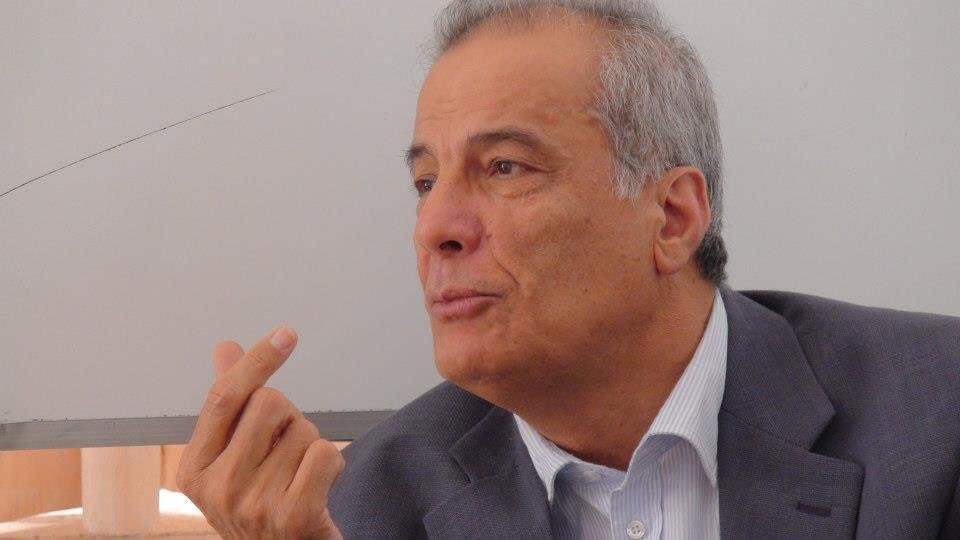Iran has adopted realistic regional policies, scholar says

TEHRAN - Modjtaba Sadria, a university professor, believes that Iran has adopted very “good” and “realistic” regional policies which have protected the country’s peace and stability.
In an exclusive interview with Tehran Times, Sadria cited improvement of Iran’s relations with Ankara after the Turkish coup attempt as an example of “Iran’s right regional policies”.
“This improvement is beneficial to both countries and also to the whole West Asian region,” he said.
Pointing to President Hassan Rouhani’s speech at the UN General Assembly, he called Rouhani a “well-informed” and “smart” politician.
“Rouhani has a long practice in international policy and political and security issues which is reflected also in his administration. He is improving the international position of Iran, an action which I would call an act of rehabilitation,” the academic remarked.
On September 22, the Iranian president delivered a speech at the UN General Assembly in New York during which he said that Iran opposes any kind of sectarianism and any attempt to promote religious division.
In his speech Rouhani also said, “Iran’s principled approach calls for constructive partnership with our neighbors with a view to establishing an enduring order based on shared security and efforts aimed at enhancing the development of the countries in the region and mutually beneficial economic cooperation. To uproot violence in the region, there is no choice but to focus on promoting democracy, citizenship rights and economic development.”
Iran-S. Arabia ties influenced by internal situations
Sadria said that relations between Iran and Saudi Arabia are influenced by internal situation in both countries.
“The internal situation of Iran is growing economically, culturally and politically,” he said.
He attached great importance to the nuclear agreement between Iran and the 5+1 group (the U.S., Britain, France, China and Russia plus Germany).
The nuclear agreement indicates a transformation within Iran in both social and political aspects and also a “dynamism” in Iran’s interaction with the world, the academic pointed out.
“Let me give you one simple example to show to what extent that new international interaction of Iran is related to deep aspiration of the Iranian people. Iranian airplanes mostly are old and have missed spare parts which have caused many tragic accidents. The agreement to buy new airplanes from Boeing and Airbus have been related to the people’s desire to travel safely,” he pointed out.
S. Arabia has reached ‘dead end’
Sadria also said that Saudi Arabia has reached a “dead end”.
“Saudi Arabia has come to a point that is not only in the dead end socially, culturally and politically, but there seem to be no possibility for change, I mean there is no room for transformation in that society,” he explained.
He added, “So, in one hand you have a society that is in a new stage of blooming as Iran and on the other hand you have a society which has reached the end of the capacities of maintaining an archaic system.”
“Saudi Arabia has come to a point that is not only in the dead end socially, culturally and politically, but there seem to be no possibility for change, I mean there is no room for transformation in that society.” Sadria went on to say that the issue of Wahhabism has undermined Saudi Arabia’s status at the international arena.
“Seven years ago, Iran was accused at the international arena, but now Saudi Arabia is in that position of accused.”
He said that said that Saudi Arabia is going through “structural weaknesses” in both its government and society.
“Saudi government and many social groups related to the Saudi government are dual or multiple citizenship of the U.S., UK and Saudi Arabia. Therefore, the tendency is running away from the society which has reached a dead end that will lead to weakening of Saudi Arabia structurally,” the professor remarked.
He also said, “Iran is basically a powerful society.”
Sadria said, “Instability is unavoidable for Saudi Arabia and to hide this instability may have two choices. One is to define Iran as adversary and the other is acknowledging Iran as the real regional power and it seems that the Saudi government is looking for both strategies.”
Crisis in Syria is a tragedy for whole region
Sadria called the Syrian crisis a “tragedy” for the country and the whole Mideast region.
He highlighted the importance of “negotiations” to put an end to the crisis that its consequences are too destructive.
Asking about the U.S. presidential election, he said that the future president should follow “moderate” policies.
“The world system has not the capacity and is not in a situation to go through major conflicts. So, anyone who will replace President Obama has to be moderate,” Sadria noted.
Asked about the tension between Iran and the U.S. in the Persian Gulf, he said, “Is there any tension? I am not sure if it is a big tension. I think they are new adjustments. I think the intention of the U.S. government is to transfer the costs of the military expenses to other areas of budgetary that allows the U.S. economy and technology to be more productive.”
Commenting on the reopening of Iran and Britain’s embassies in Tehran and London, he said that the relations between the two countries have get back to normal.
It was urgent for the UK to normalize ties with Iran, he said.
He added that the UK had to find its way to resume relations with Iran given the expansion of the European Union’s ties with Iran and the exit of the UK from the EU.
Iran and Britain exchanged ambassadors for the first time since 2011 in September.
(The interview is conducted by Negar Asadi)
Leave a Comment